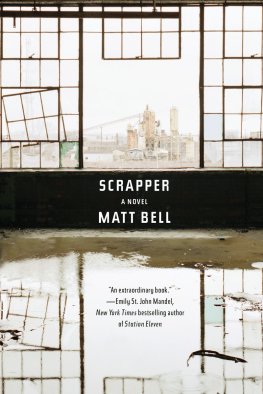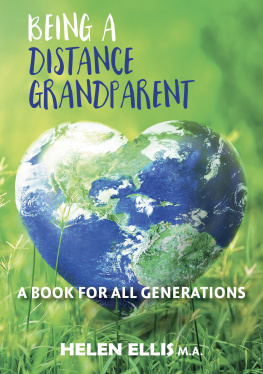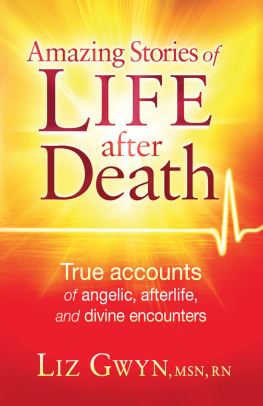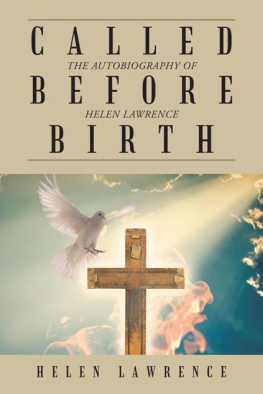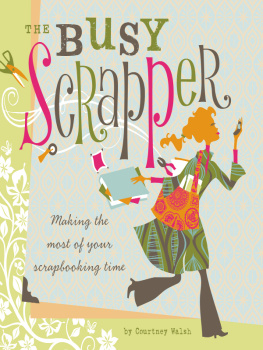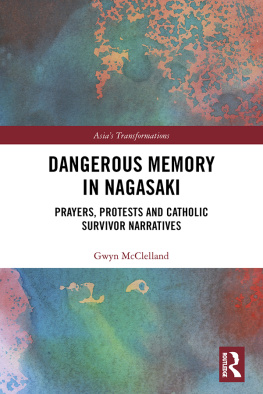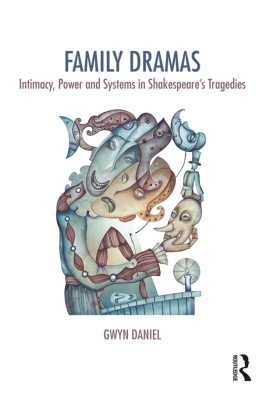Kit Habianic grew up in Caerphilly, Colwyn Bay and Cardiff. As a freelance journalist, she slept under the stars in the Western Sahara, chewed qat in the souqs of Yemen and sailed the backwaters of Kerala, purely for research purposes. Her journalism has appeared in The Guardian , The Daily Mirror , The Times , Marie Claire (US) and Time Out and in trade titles in Europe and the Middle East. Based in London, she processes copy for a business daily, all the while plotting new stories to write. Her short fiction has appeared in anthologies and literary magazines and made the shortlist for the Willesden Herald short story prize. Until Our Blood is Dry is her first novel.
UNTIL OUR BLOOD IS DRY
Kit Habianic

Gwyn shifted the belt between his hands. The scuffed black leather was fixed to a buckle of solid brass, initials etched on it. Presented to the old man to mark his twenty-fifth year at Blackthorn, that belt, only weeks before the blast that took him.
He ran his thumb and forefinger over the scratched metal. Lucky for the girl that he was slow on his feet, lately. He looped the belt around his waist and buckled it again. A dizzy spell sent him back to his chair. Hed asked the pit medic about his symptoms; the dizziness and the fighting for breath and lost appetite. He pressed his face to the bathroom mirror every morning, waited to see the anthracite bruises beneath his nails spread to his lips, for the whites of his eyes to stain blue. When coal dust showed in the face, death called within the year. Black lung. It did for his granddad and three of his uncles. Did for so many older miners. Would have done for his old man and for Gabe Parry if the darkness hadnt taken them first. Coal would come for him, too, like as not.
His arm ached, lungs threatened to choke him. The girl was with that boy all afternoon. With that firebrand, trouble-making boy. The grandfather clock chimed the hour. He set aside his newspaper, turned on the TV to watch the news. The prime minister was striding down a production line at a car plant in the Midlands. The car workers queued to be inspected, slouch-necked and awkward, dressed in spotless overalls to meet the woman taking a crowbar to the UK car industry. Britains glorious leader, squaring up to the car unions, cwtching up to the Japanese. She glided down the line, the prime minister, hair set to concrete. Blue suit, blue shoes, blue hat, blue handbag, the better to match her politics.
Carol came padding down the stairs. Hed told her not to go after the girl. And shed defied him, yet again.
She perched on the arm of her chair. Well, cariad ?
He fixed his eyes on the prime minister. A fine set of pins on her.
So what happened?
Leave it, will you.
You got fresh trouble with your men?
He sighed. Same old story. Nothing for you to worry about.
Carol tilted her head, waiting. A terriers persistence, she had.
The roof fell in. Gabe Parry went missing. I told the men to stay put, but Iwan and Scrapper Jones defied me, went looking for the old boy. The roof fell in some more and Dai Dumbells and Iwan Jones got injured. And for nothing. Gabe was killed straight off.
And you punished the boy and his dad?
For Gods sake, woman. They went against my orders. Nearly turned an accident into a disaster. It was Albright suspended them. Then the rest walked off the job.
But how could Albright send them home for trying to find poor Gabe?
Orders is orders.
Yes, but Gwyn
It was all he could do not to throw back his head and howl. As bad as that rabble from the lodge, his own wife, his own daughter. Hed had a bellyful of back-chat. His hand twitched. And he had never hit his wife.
She knelt beside his chair, took his hand.
But you did the exact same thing yourself, cariad . The deputy told you not to go back for Alf Manifesto. But Alf was your butty and to hell with what the boss said back you went.
A low blow, that. He snatched his hand away. When he spoke, his voice was tight. I was young and bloody-minded. The deputy was well within his rights to tan my hide for going back for that miserable old Bolshevik.
She sighed. Point is, you werent disciplined. And why? Because the deputy was a former collier. He understood.
So?
So you understand and all. You could speak to Albright. Get him to reinstate the Jones lads.
Reinstate? They disobeyed my orders.
Yes, Gwyn. But you got a chance to help cool things off.
Cool things off ?
She seized his hand again. Stroked the stumps that were once his fingers. We both knows the price of coal, eh, cariad . What do they know, them managers with their clean fingernails and their number-crunching? To hell with men in suits, shuffling bits of paper from desk to desk, Gwyn. You owe nothing to them and everything to Blackthorn. To your men.
The irony. To my men? Its for them to decide; are they with me or with the lodge.
But Gwyn
She was clueless, his wife. If she knew what Smith-Tudor had told him. Profitable, productive pits would live. Pits with falling yields would die. Hundreds of jobs would go. Under-performing collieries would shut. It was every man for himself now. Hed sworn him to secrecy, the coalfield boss. Pits that performed overmen that performed only they had a fighting chance.
He made a promise, Smith-Tudor. Keep the coal flowing, keep your nose clean, Ill take good care of you, Pritchard. Got a desk job with your name on it.
A desk job. As dreams went, that wasnt much to ask.
Are you sure its the lodge thats the problem, Carol said.
It took all his strength to hold back. He took in the drawn face, the beaky nose and jowly cheeks, the permed hair thinning at the roots. Three wrinkles split her forehead like rings on a tree. One for each of her decades. A shotgun wedding, they had, Carol several weeks gone. And hed done right by her, even so.
Sixteen years I been married to you, he told her. Put food on your table, kept a roof over your head. Are you even one bit grateful?
She slunk back to her chair, picked up her knitting. He raised his newspaper, flicked through the pages, the columns of newsprint a blur. After a while, the needles stopped clicking.
Ill visit Margaret in the morning, she tried to sound casual. Pay our respects. Find out what she needs.
What?
Its the least I can do. Remember after your accident? She minded Helen while I visited the hospital. Baked casseroles
He hurled his newspaper at the television screen. You are not visiting Margaret Parry. Whose bloody side you on?
Gwyn, you cant be
Enough , woman.
Carol rummaged in the sideboard drawers, turned back, holding a yellow crocheted square, the wool faded and bobbled from years of washing. You remember this?
He shrugged. That old thing? Used to lay it over the girls pram.
And?
He looked at the yellow wool again. A ragged old thing, it was. They used to call it Helens cwtch . When the girl was a toddler, she dragged it everywhere. Loved it half to death, though it snagged and gathered stains from mud and dust and all sorts. A dirty, disgusting thing, Helens cwtch . He hadnt seen the thing in years.
Remember the day you took it off her?
He shook his head.
She cried her eyes out, Carol nestled the grubby wool against her cheek. Bawled her head off til we gave it back to her. Wouldnt sleep without it. Scared silly of the bwci-bo under the bed without her cwtch .
Whats your point?
Point is, Gwyn, Margaret Parry crocheted that cwtch . Made it for Helens christening. Been saving it to pass on to our first grandchild. A piece of our history, that cwtch . A piece of Helens history. And Margarets a part of it.
Next page

